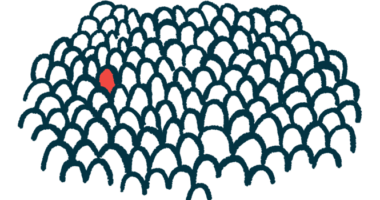The Beauty of Healing Through Language

I can hear the shower going upstairs as I sit at my writing desk in my downstairs office. It is funny how the sound of running water always makes me feel a little melancholic and contemplative.
At the moment, I am dwelling on a question someone posed to me after reading one of my columns. They asked how I can bear exposing my innermost thoughts and feelings while caring for a spouse with hereditary amyloidosis. Is there no fear in unmasking all the emotional aches and pains? Does disclosing personal details not make me vulnerable to the masses?
Ironically, I simply have not placed much thought into the ramifications of sharing my experiences as a carer. When the invitation to write came up, I just instinctively knew I should do it. It never crossed my mind to consider the consequences of sharing. Perhaps all the pent-up anguish and frustration needed a release.
My husband, Aubrey, was diagnosed with hereditary familial amyloidosis in 2013, and adapting to life with the disease has affected me to the point that I cannot hold back or keep silent anymore. I’m like a pressure cooker that needs to let off steam.
Hence, I feel very honored to have this platform and be able to contribute to the familial amyloidosis polyneuropathy family. I always pray before hitting “Submit” that what I write will help people. After all, we are in this journey together.
Sharing my experiences is a form of therapy that I need. I find that verbalizing what I am going through is important for my mental health. Simply opening myself up to trusted people, being heard, and allowing others to sow encouragement into my situation is crucial. Many times, it is not so much the advice but the listening ear people can provide. That solace in the stillness of the communion with one another is beautiful.
Writing, on the other hand, I find deeply restorative. The abilities to speak, to share, to write, and to create are some of life’s most precious blessings.
The American poet, memoirist, and civil rights activist Maya Angelou said it best:
“When I’m writing, I am trying to find out who I am, who we are, what we’re capable of, how we feel, how we lose and stand up, and go on from darkness into darkness. I’m trying for that. But I’m also trying for the language. I’m trying to see how it can really sound. I really love language. I love it for what it does for us, how it allows us to explain the pain and the glory, the nuances and the delicacies of our existence. And then it allows us to laugh, allows us to show wit. Real wit is shown in language. We need language.”
To the carers and sufferers reading this: I want you to know that language is precious. It is precious because it can be a guiding light that helps you out of the darkness you are facing.
I always say that the effects of amyloidosis, no matter what type, progress at a gradual and vile pace. Sufferers wake up each day not knowing which part of their body has been compromised overnight. One day you may feel almost normal, and the next, you feel like a truck has just run over you. Handling these constant ups and downs is distressing for both the afflicted and their loved ones. Before you know it, exasperation hits and early signs of depression manifest, as was the case with me.
If you find yourself struggling, remember that the best victories often follow a period of defeat. Get up and find your upright posture. Remember that you are loved, you are treasured, and you are still alive.
Start talking, singing, writing — anything to give yourself a voice. Do this even if you don’t want to. Do it because you are stronger than you think.
***
Note: FAP News Today is strictly a news and information website about the disease. It does not provide medical advice, diagnosis, or treatment. This content is not intended to be a substitute for professional medical advice, diagnosis, or treatment. Always seek the advice of your physician or other qualified health provider with any questions you may have regarding a medical condition. Never disregard professional medical advice or delay in seeking it because of something you have read on this website. The opinions expressed in this column are not those of FAP News Today or its parent company, Bionews, and are intended to spark discussion about issues pertaining to familial amyloid polyneuropathy.







Leave a comment
Fill in the required fields to post. Your email address will not be published.